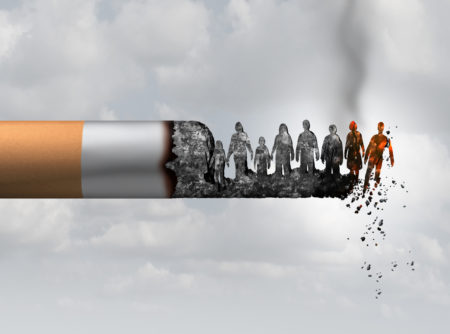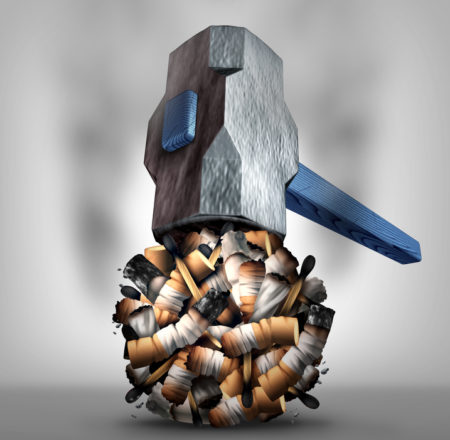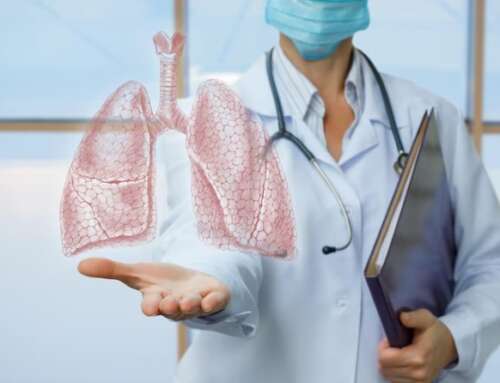The Lung Cancer Awareness campaign comes to us officially every November. Here at FLASS (Florida Lung, Asthma and Sleep Specialists), we retain the awareness all year long. However, during this official month of awareness, we annually become even more sensitive to the risks and causes of lung cancer.
Lung Cancer Awareness

Lung Cancer Caused by Smoking Decimates Thousands. It’s Time to Quit. Ask FLASS how.
In this blog article, we announce the Lung Cancer Awareness Month. Additionally, we share 3 important ways you can lower your risks for Lung Cancer, as well as everyone in your family’s…
Risk Reducer Number One: No Smoking, Please!
We are often asked if there is one single thing a person can do to avoid lung cancer. And there is a crucially important thing you can do to lower your risk. In fact, we will give you a few suggestions on this blog. Experts agree that the singular best way to lower your risk of ever getting lung cancer is to avoid smoking. That’s right: “the most important thing you can do to prevent lung cancer is to not start smoking, or to quit if you are smoking.” We might have said this previously, but it continues to be true.
Lung Cancer Awareness: Best Kept Secrets
FLASS thinks everyone probably knows that smoking is a cause of cancer. However, the evil secret behind this cancer-causing agent is that it can then actually block your body from properly fighting the cancer.
Moreover, did you know statistics prove that 9 out of 10 lung cancers are caused by the simple act of smoking cigarettes?
Yes, we are creating improved treatments and therapies for lung cancer. But at the same time, Lung Cancer retains its royal position as the number one type of killer cancer. Thus, Lung Cancer Awareness means knowing statistics like the above 9 out of 10 lung cancers being caused by cigarettes.
The CDC has given us more 4 more semi-secret facts:
Did you know quitting smoking “lowers the risks for cancers of the lung, mouth, throat, esophagus, and larynx?”
Likewise, within 5 years of quitting, your chances of contracting “cancer of the mouth, throat, esophagus, and the bladder is cut in half.”
And this is really exciting: “Ten years after you quit smoking, your risk of dying” from lung cancer drops 50%.
And FLASS doctors and staff are particularly fond of this statistic. “If nobody smoked, one of every three cancer deaths in the United States would not happen.”
We know we have previously blogged about smoking and its relationship to lung cancer. However, we Have not brought up a direct topic recently. That does not mean it does not concern us. With all the publicity, expense and social stigma associated with it, this health hazard, it is still an all-too-popular habit.

This Cigarette is Going to Hurt. Are You Smoking Bait in a Lung Cancer Trap?
Lung Cancer Awareness also means awareness of the dangers of smoking. For help quitting, visit the wonderful online resource smokefree.gov or call 1 (800) QUIT-NOW. You can also call (784-8669), or text “QUIT” to 47848 from your cell phone. Be sure to check out their quiz about withdrawal symptoms. They also have phenomenal suggestions about handling stress while you quit. Smoking is simply an invitation for lung cancer to thrive in your chest.
You’ve Come A Long Way?
And we hate to single out any one group, but we are very concerned with women and smoking. In the last 50 years, a woman’s risk of dying from disease contracted by smoking has more than tripled. It is equal in the worst sense to a man’s risk of dying from the same unhealthy habit. Likewise, we want you to know that more than 200,000 women die every year women die every single year from a smoking-related disease. Just in case you want to know how this compares to men, 270,000 men will die each year from a smoking-related disease.
Lung Cancer Awareness Rule Two: Second Hand Woes
So if avoid smoking is our number one way of reducing your risk for lung cancer, it should be easy to imagine our number two way. Be aware of the dangers of second-hand smoke.
It is so sad to see that secondhand smoke can cause lung cancer in adults who have never consciously taken a puff.
In this regard, we can reveal a statistic that greatly distresses numerous pulmonologists. Nonsmokers who are exposed to secondhand smoke at home or at work increase their risk of getting lung cancer by 20% to 30%.
Lung Cancer Awareness Rule Three: An Invisible, Cancer-Causing Killer
Our risk-reducing rule of cancer awareness is less obvious than either number one or two. You might not know that there is gas loose in your house. You cannot smell, taste, or see it and it does come from nature. It comes from rocks and soil and even dissolves in groundwater. In fact, the CDC states, “Radon is thought to be the second leading cause of lung cancer in the United States. It is responsible for more than 20,000 lung cancer deaths each year.” So how do you get exposed to radon?
It drifts through cracks and gaps in the foundations of buildings and homes. Also, it is very bad for your lungs. Over time, it can cause lung cancer. If your house is like one out of every 15 American homes that has a high level, you can fix it. And thus reduce your lung cancer risk. First, you must test your home.
After Testing—Fix Your Radon Problem to Lower Your Lung Cancer Risk

Radon is a Silent Killer. Are You Protected?
If your home tests high for Radon, the CDC states, “…you can repair your home. Radon mitigation contractors can help by sealing cracks where radon gets in.” Likewise, they might have to put in special pipes that help divert radon from under your home, sending it outside. Radon in your home can be a serious health risk — but it’s a problem you can fix. If you haven’t tested your home for radon, take a warning from the CDC and from FLASS: Get a test kit now. Learn More About Radon: Visit the radon CDC site..
Terrific Take-Aways from Lung Cancer Awareness
We hope you’ll join us in celebrating Lung Cancer Awareness month. As part of our campaign against lung cancer, we have shared the three major ways you can reduce your risk of contracting this dreaded disease. Be aware you have choices about the risks of lung cancer. And we have many patients who made unwise choices. They took risks and thought “it” would not happen to them.


